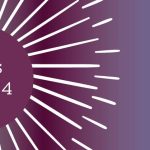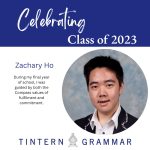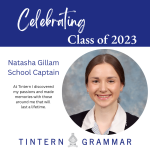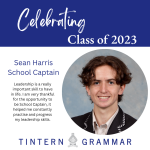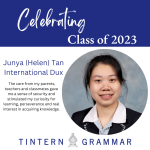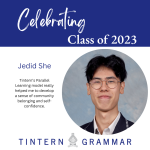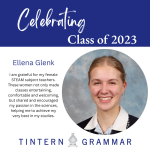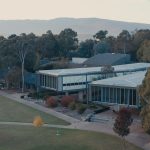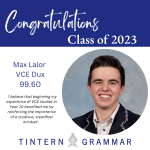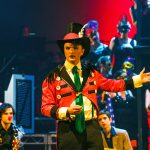
Future Ready
As adults, we are all fully aware how quickly the world is changing, especially after the last two and half years. We have seen an incredible wave of growth in the technology sector that has brought about significant changes in the way we go about many aspects of our lives. How we interact personally with our friends and families, how we watch TV or sport, the way we shop for goods and services, the way we even meet new people. All of this was already changing pre-COVID; however, it has just been accelerated.
The world of work has also changed significantly in almost all professional sectors. If asked the question in 2019 if we as teachers could effectively “teach” our students over an electronic platform such as Teams or Zoom, secondary teachers would have laughed at such a thought (hiding their actual feeling of horror!). No one would argue that having students at school is absolutely preferable for them and their learning, but we have demonstrated as a community that we can adapt to the situation presented and still accomplish the learning outcomes we hoped to achieve.
This flexibility and adaptability are no doubt present across many other sectors who would also have been forced to make significant changes in their internal structures and/or processes in to maintain success in these turbulent times. It is this ability to embrace change and to demonstrate resilience and perseverance that would have aided them throughout their journey. What it highlights to all of us is, these attributes need to be continually fostered and developed to provide our students with the confidence and capabilities to embrace the challenges that they will face both at school and through their adult lives.
The future of education is about educating the whole person, not just their academic side. Schools need to provide opportunities for creativity, entrepreneurialism, collaboration, and communication. The learning of the three Rs still has a significant place; however, it needs to sit together with programs designed to develop students’ critical thinking, resilience, and reasoned problem solving.
In Tintern’s Secondary School our academic program is very strong. It is designed to provide and develop the strong foundations required for students’ future learning and their professional lives, whilst also providing them with opportunities to develop areas of interest and passion. In the Middle School the curriculum is broad to provide students with exposure to as many areas of learning as possible. This enables students to begin developing their areas of passion whilst continuing to build and strengthen their academic foundations. These academic strengths are fostered not just through our classroom teaching, but also through our curriculum support program, and our enrichment and enhancement programs. Each of these areas are designed to provide all students with the appropriate level of academic support and challenge.
As students progress into the Senior College in Year 10, their academic program begins to focus more toward individual areas of interest and strength. This culminates in completing on average between 5 or 6 VCE Unit 3-4 subjects as part of their completion of Year 12. From here, our students then look to move into any number of post-secondary areas such as tertiary education or even the workforce.
We strive to create graduates that are future ready. Are they adaptable? Are they flexible? Can they cope with change? Do they have a level of resilience that will allow them to cope with the ups and downs that life will throw at them? These are the skills and attributes that have been developed through their schooling by participation in academic and the many non-academic programs and opportunities. From their involvement in our tailored pastoral program integrating The Resilience Project, to the many wide and variety of co-curricular opportunities available. The emotional and social development that is aided by programs such as The Man Cave, Enlighten Education and Toolbox Education, as well as involvement in activities such as the School musical, the Sports program, Music and Singing, and the many different clubs and societies all assist in developing other attributes and skills that will be vital for their ongoing sense of achievement and fulfilment. We have recently introduced Cultures of Thinking from Harvard University to all staff and students across ELC – Year 12. This is aimed at engendering broader capabilities in academic learning by the type of collaborative, deep thinking activities this framework instils.
Historically, education has been reluctant to embrace change and been quite set in the way things are done. A positive that may have come from COVID-19 is the recognition of what education really needs to be for our students, and that significant changes need to occur. Maintaining a strong academic focus is very important. Now more than ever, this needs to sit alongside the development of the whole person in order to best prepare our students for life after school. We want our graduates to have the confidence and courage to embrace the challenges and opportunities that will be available to them when they move on and look to contribute positively to our world.
Brett Trollope | Head of Secondary
